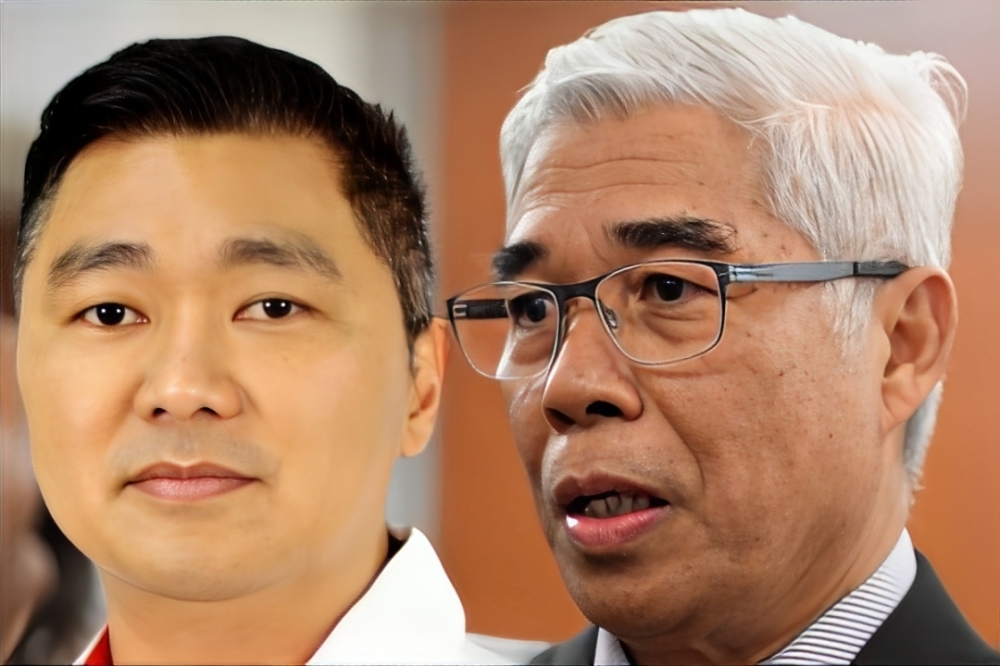KOTA KINABALU, Oct 22 — United Kinabalu Progressive Organisation (Upko) has hit out at a fellow Pakatan Harapan Member of Parliament for suggesting that the party is holding the coalition to “political ransom” over last week’s landmark ruling on the 40 per cent tax revenue to be returned to Sabah.
Pasir Gudang MP Hassan Karim had questioned Upko President Datuk Ewon Benedict’s decision to resign as Federal Minister should the Federal Government appeal against the ruling.
Hassan said the judicial process must not be obstructed, pointing out that the AGC has the right to file an appeal.
“If we truly uphold the rule of law and the supremacy of the Federal Constitution, the AGC must be allowed to perform its duty,” he said in a statement.
Hassan said such threats went against the principles of constitutional democracy. He also said Sabah received a higher allocation in Budget 2026 compared to several states in Peninsular Malaysia, including Terengganu, Kelantan, Perlis and Kedah.
“This issue involves constitutional law under Articles 112C and 112D of the Federal Constitution. The final say on such matters lies with the Federal Court, not the High Court in Kota Kinabalu,” he said.
“Malaysia as a federation will be weakened if political threats are used to pressure the Federal Government. Let the legal process take its full course.”
Sabah Umno chief Datuk Seri Bung Moktar Radin had also cautioned Putrajaya saying the movement will pressure its lawmakers to bring a memorandum of objection to the Prime Minister if the Federal Government decides to appeal.
However, Upko Sec-Gen Datuk Nelson W. Angang described Hassan’s comments as “deeply surprising,” particularly coming from a senior and experienced lawmaker who should understand the conventions of the Westminster parliamentary system.
“It is widely understood that every cabinet member is bound by the doctrine of collective responsibility. However, if a Minister cannot support a government decision, it is both customary and principled for them to step down from the cabinet,” he said.
Nelson stressed that such move is not rebellion or a threat but a reflection of political integrity and adherence to democratic principles.
“In the Westminster system, such occurrences are not unusual. In the United Kingdom, many cabinet members have resigned on matters of principle when unable to support government decisions,” he said.
He said the same democratic integrity applies to Ewon, whose long-standing commitment to the implementation of the Malaysia Agreement 1963 (MA63) and Sabah’s 40 per cent revenue entitlement is well-documented and enshrined in the party constitution.
“Ewon remains steadfast in upholding this principle. Whether one agrees or not, the honourable course of action for a minister who cannot support a government decision on grounds of principle is to resign,” he said.
Nelson emphasised that while the judicial process allows for appeals, not every court ruling needs to be contested.
“Each decision must be evaluated based on its legal merit, justice, and the strength of arguments presented. In many cases, the losing party opts not to appeal when the decision is deemed fair and sound,” he said.
He urged Hassan to better understand the historical and constitutional significance of MA63 and the long-standing struggle of the people of Sabah and Sarawak to see it fully implemented.
“He would do well to consult the people of Sabah directly about their sentiments regarding the recent Kota Kinabalu High Court decision, which recognised Sabah’s 40 per cent net revenue entitlement and declared that the Federal Government has failed to honour it since 1973,” Nelson said.
He said the court ruling presents a critical opportunity for the nation to move forward together in the spirit of MA63 and uphold the constitutional rights of Sabahans and Sarawakians.
On Oct 18, the High Court in Kota Kinabalu ruled that the Federal Government breached the fundamental right of the state government of Sabah and its people for not honouring the 40pc net revenue entitlement.
Justice Celestina Stuel Galid had, among others, stated that the failure of the Federal Government to hold a second review in 1974 with the Sabah government was a breach and contravention of its constitutional duty.
This means that the 40pc entitlement remains due and payable to Sabah for each consecutive financial year from 1974 to 2021.
Following the court’s decision, some Sabah leaders have urged the AGC not to appeal the case. — Daily Express






